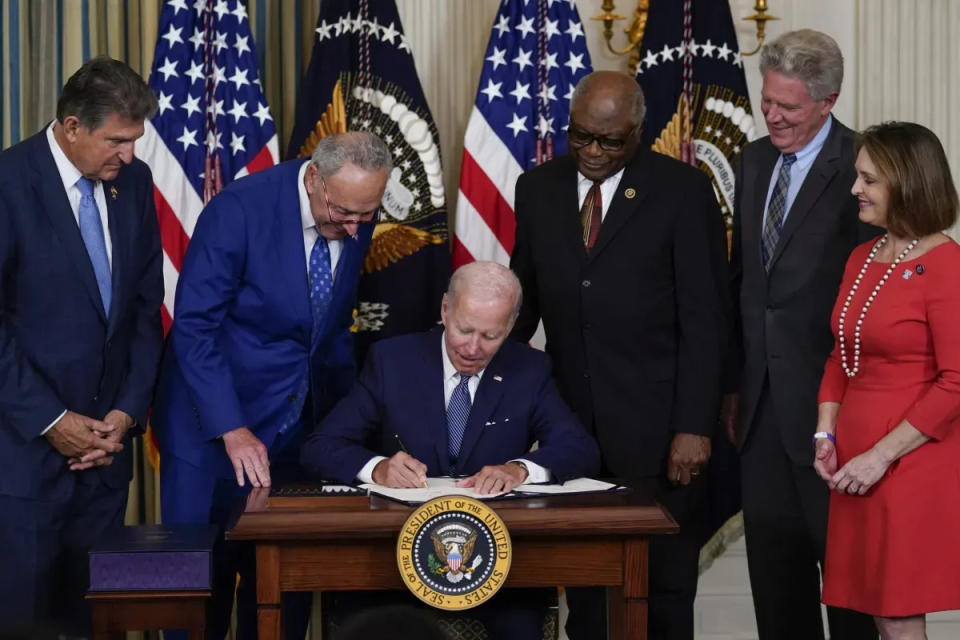The money and opportunity await, will Pa. build an energy economy fit for the future?
Pennsylvania has a long history of energy production, stretching as far back as the late 18th century. Pennsylvania's abundance in fossil fuels has traditionally played the central role, however, that is rooted in Pennsylvania's past, not its future.

The state is poised to become a leader in our nation's transition to a clean, resilient zero-pollution economy. Pennsylvania will take an important step by joining the Regional Greenhouse Gas Initiative (RGGI), a multistate program under which power companies are obliged to pay for the pollution they create and are incentivized to increase renewable energy sources, which both reduce pollution over time.
RGGI will provide hundreds of millions of dollars annually from auctions which can fund projects that reduce air pollution and energy costs, like energy efficiency, and for the deployment of renewable energy. RGGI, coupled with the Inflation Reduction Act (IRA), now celebrating its one-year anniversary, create a once-in-a-generation opportunity for Pennsylvania to become a trailblazer in the new energy economy and turn the page on its fossil fuel past.
Before Pennsylvania can build its bright, new future, it must first confront its pollutive past. One of the ways to achieve this is by addressing the pollution from our roads and highways. Transportation is a leading source of air pollution that threatens the health of Pennsylvanians. The Biden administration's clean energy plan provides incentives for the manufacture and purchase of zero-emission vehicles (ZEVs), including $1 billion for zero-emission heavy-duty vehicles, including garbage trucks, school buses, and fire trucks. The Bipartisan Infrastructure Law complements this plan by allocating more than $171 million to accelerate electric vehicle (EV) charging infrastructure in the state.
Building these heavy-duty ZEVs and the EV-charging infrastructure will create thousands of good-paying union jobs like at the Mack Trucks plant in Lehigh Valley, which employs about 2,500 people and builds electric garbage trucks that produce no tailpipe emissions.
The American Lung Association has projected that Pennsylvania's transition to zero-emission transportation could have enormous benefits, including saving $86.8 billion in public health benefits, avoiding 7,940 deaths, and avoiding 148,000 asthma attacks.
President Biden's plan provides funding for Pennsylvania to curb pollution and improve reliability from its electric power sector. Pennsylvania will benefit from the IRA's modified and extended tax credits, which can help kickstart renewable energy projects. Projects like the deployment of wind farms and solar arrays, and states with strong, binding pollution limits like RGGI will have greater incentives to use these tax credits to their advantage. These policies working together will accelerate Pennsylvania's progress towards achieving its goal of cutting greenhouse gas emissions by 80% by 2050.
Opinion: A conservative argument for clean energy: Follow the market, fossil fuels no bargain
The commonwealth's clean energy future will require system-wide changes to its electric grid to both meet our climate goals and to safeguard our power grid against extreme weather. Storms like Winter Storm Elliott last year can wreak havoc on our power grids, cause large-scale fossil fuel plant failures and lead to gas shortages that leave us vulnerable to outages. With winter rapidly approaching, the clean energy plan offers thousands of dollars in tax credits for homeowners to buy energy-efficient appliances, like heat pumps, which is also one of the most effective ways for homeowners to reduce their carbon footprint.
More: Giant solar farm is 'in the talking stages' for Erie County in Venango Township
The clean energy plan is already having an impact on Pennsylvania's economy, but its potential has barely been tapped as there are still millions of dollars and numerous programs on the table. Pennsylvania's leadership will dictate whether and how we take advantage of policies that have already benefited the citizens of the commonwealth. Capitalizing on this moment means good jobs, a clean energy economy, and improved health for historically impacted communities.
It's time for Pennsylvania to embrace its future and continue to lead with the next generation of energy production. It's imperative that the leaders of the commonwealth capitalize on these generational investments and ensure that federal funds are accessible and the applications to access them easy, especially for businesses, counties, towns, schools, and other community organizations. Simply put, Pennsylvania's clean energy future depends on it.
Mandy Warner is the director of climate and clean air policy at the Environmental Defense Fund.
This article originally appeared on Erie Times-News: EDF calls on Pa. to shed fossil fuel past, embrace clean energy

